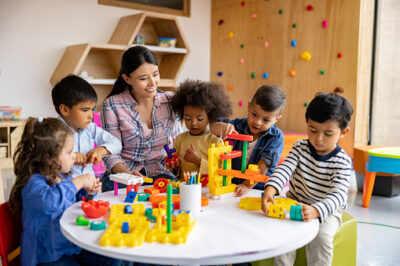The age of a woman has a significant impact on her fertility. Understanding the relationship between female fertility and age is crucial for women who want to conceive. The reproductive years for women are between 18 to 45 years old, with peak fertility years from late 20s to early 30s. During this time, a woman has the highest chance of conceiving naturally.
The quantity and quality of a woman’s eggs are affected by age. As women approach their mid-30s, the quality of their eggs begins to decline, leading to a decrease in fertility. This decline becomes more pronounced as women approach their late 30s and early 40s (The Royal Women’s Hospital, 2021).
While the ideal age for a woman to conceive is between late 20s to early 30s, factors such as overall health, family history, and lifestyle can impact fertility. It is important to be aware of these factors and to seek medical assistance when needed (American Pregnancy Association, 2021).
It is widely accepted that the biological clock of women is ticking and the best age for them to conceive is in their late 20s to early 30s. However, it is important to remember that every woman is different, and fertility can vary. The age of infertility in women varies, with the average age being between 35 and 37. This means that after 37, it becomes more difficult for women to conceive naturally (National Health Service, 2021).
After 40, the chances of conceiving naturally decline significantly, and the risk of infertility and miscarriage increases. It is never too late to seek medical assistance, and with the right treatment, women can increase their chances of having a healthy pregnancy (American Pregnancy Association, 2021).
It is crucial for women to consider their fertility when making decisions about starting a family. In this article, we will discuss important factors to consider for fertility and how they can impact a woman’s ability to conceive.
Factors to Consider for Fertility:
Age:
The age of a woman is the most significant factor affecting fertility. The biological clock of a woman is ticking, and the best age for a woman to conceive is between late 20s to early 30s (American Pregnancy Association, 2021).
Overall Health:
A woman’s overall health can affect her fertility. Factors such as obesity, smoking, and excessive alcohol consumption can decrease fertility (The Royal Women’s Hospital, 2021).
Family History:
A family history of infertility or genetic disorders can impact a woman’s fertility (National Health Service, 2021).
Lifestyle:
A woman’s lifestyle, such as stress, poor nutrition, and lack of physical activity, can also affect fertility (The Royal Women’s Hospital, 2021).
Medical History:
A woman’s medical history, such as previous surgeries, sexually transmitted infections, and chronic illnesses, can also impact fertility (National Health Service, 2021).
Previous Pregnancies:
Previous pregnancies can also affect a woman’s fertility, including the number of previous pregnancies, the age of the mother, and the age at which the pregnancies occurred (The Royal Women’s Hospital, 2021).
In conclusion, the age of a woman plays a crucial role in her fertility. It is important for women to be aware of their biological clock and to consider their fertility when making decisions about starting a family. Understanding the relationship between female fertility and age, as well as considering the important factors discussed above, can help women increase their chances of having a healthy pregnancy.
References:
American Pregnancy Association (2021). Female Fertility Age.
https://americanpregnancy.org/getting-pregnant/female-fertility-age/
The Royal Women’s Hospital (2021). Fertility and Age.
https://www.thewomens.org.au/health-information/fertility-and-age
National Health Service (2021). Women’s Fertility: Age and Fertility.
https://www.nhs.uk/conditions/pregnancy-and-baby/age-and-fertility/




